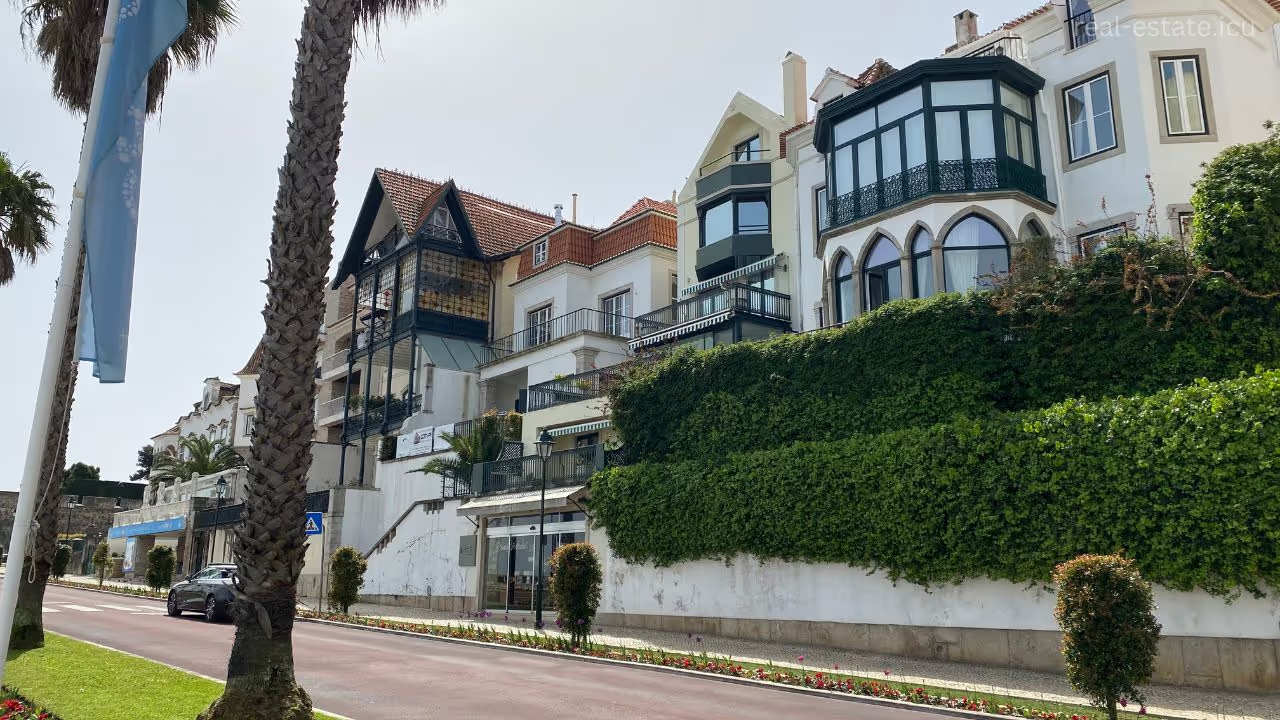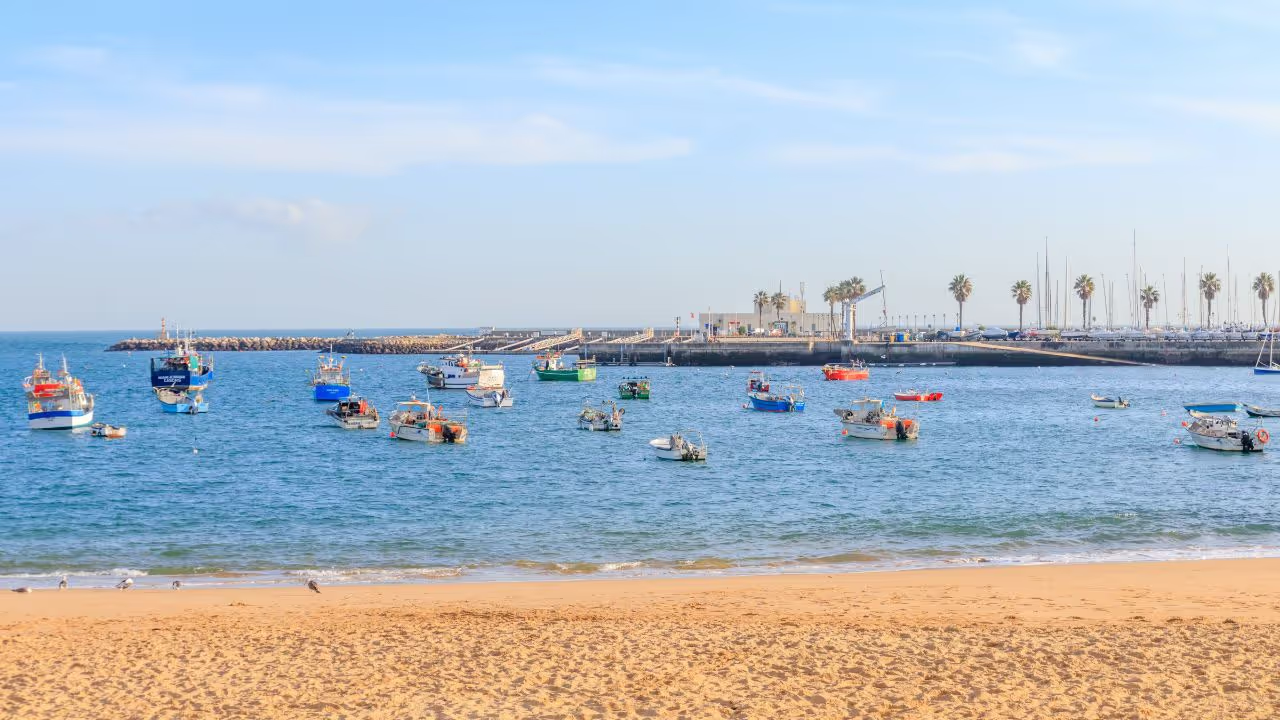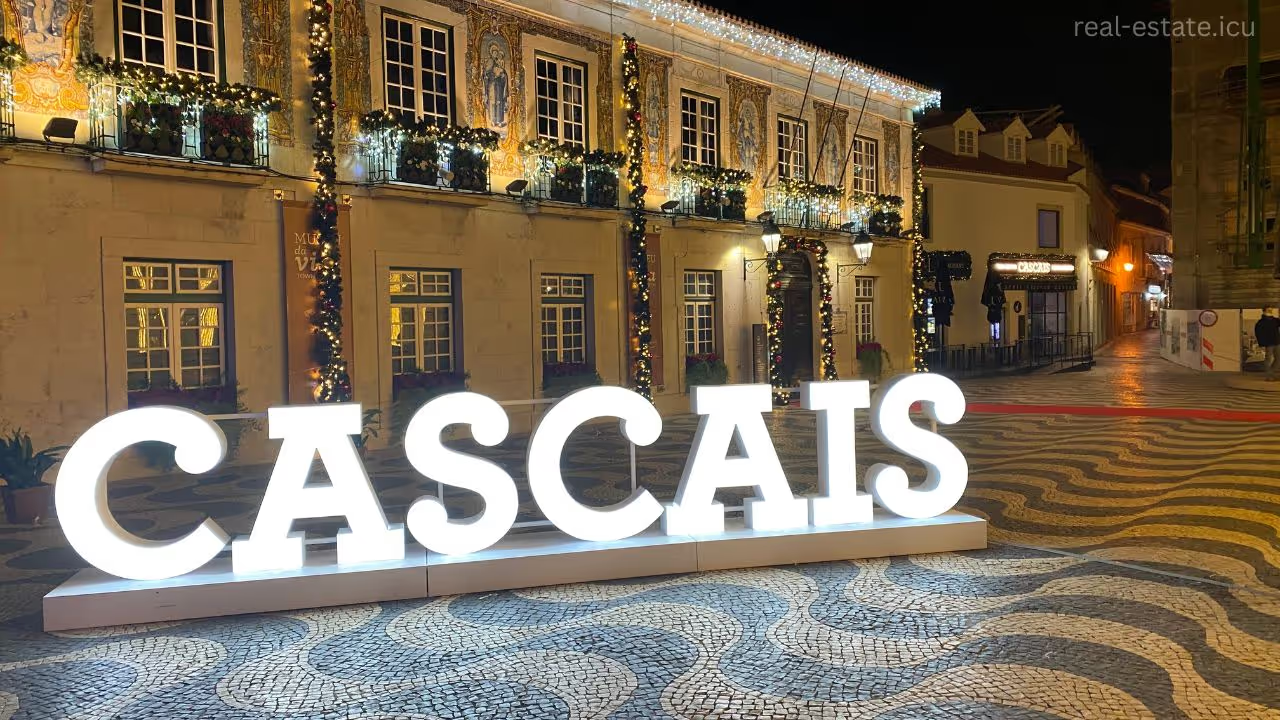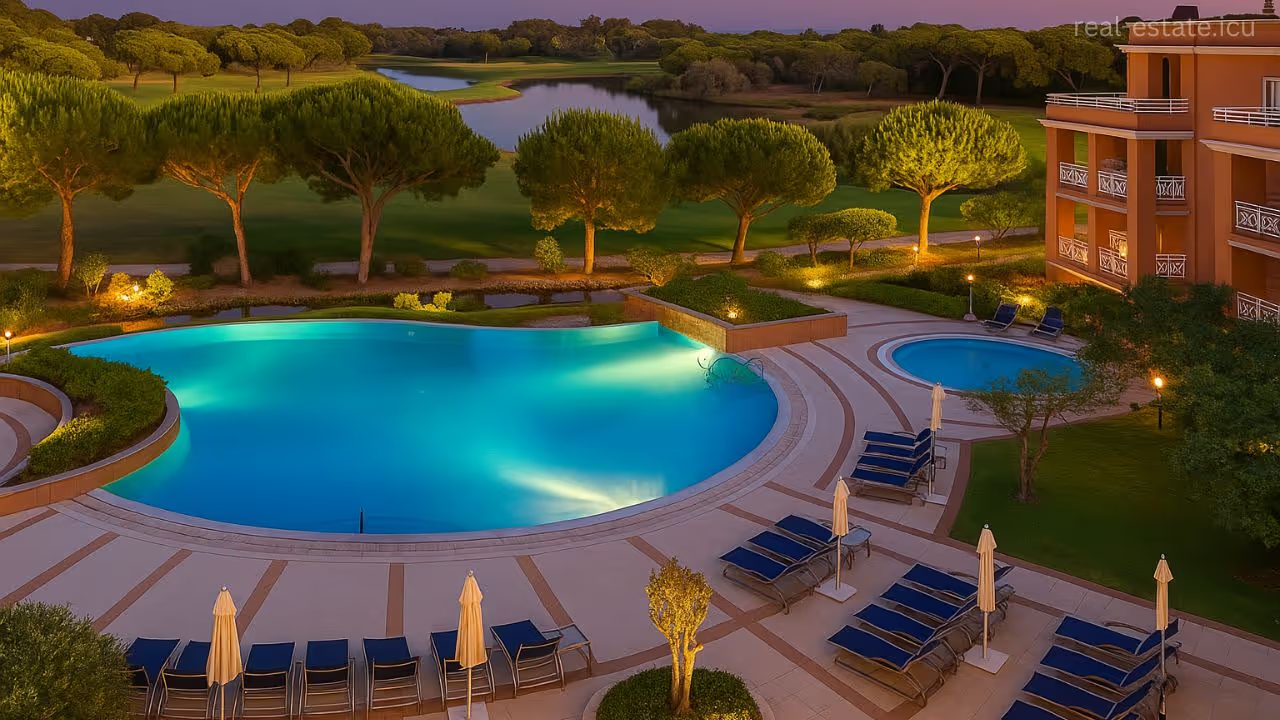Buying in Cascais: What You Need to Know

Cascais blends Atlantic charm with easy access to Lisbon. Its walkable centre, beaches, and quality of life draw international buyers, digital nomads, and retirees. But buying here involves understanding market norms, neighbourhood vibes, legal steps, and costs beyond the listing price. Below are five in-depth sections (~300–500 words each), with varied sentence lengths, occasional colloquial slips, internal anchor links, outbound citations, lists, tables, images, and FAQs at the end.
1. Why Cascais?
Cascais sits about 30 minutes from Lisbon by train or car, offering a seaside lifestyle with urban conveniences. Golden beaches like Praia da Rainha, the scenic promenade to Estoril, and green spots such as Marechal Carmona Park make daily life pleasant (zoark.com). It ranks among Portugal’s safer municipalities. International schools and healthcare options in Cascais and Lisbon metro cater to families; see Schools guide and Healthcare overview. Costs: while some items mirror Lisbon prices, overall living may run ~7% lower, but prime coastal housing can be pricier (zoark.com); check Cost of Living for context.
Culture and leisure: Cascais Marina hosts events; Cidadela Arts Quarter offers galleries and cafes in a historic fortress; festivals occur year-round. Outdoor activities—surfing at Guincho, hiking in Sintra-Cascais Natural Park, cycling paths—suit active lifestyles . For remote workers, co-working spaces and Lisbon’s proximity (train ~40 minutes) balance work and leisure . English is widely spoken in services, but learning basic Portuguese helps daily interactions.
Real estate appeal: diverse types—from Pombaline-style townhouses in Cascais Central to modern apartments with sea views, and villas in suburbs like Birre or Alcabideche. Prices reflect demand and limited coastal land, so local guidance is key to spot value and avoid overpaying. Browse neighbourhood insights: Cascais Central, Guia, Estoril, Birre, Alcabideche.
Portugal’s stable political and legal environment, plus transparent property laws allowing 100% foreign ownership, add confidence. Tax regimes (NHR or new Incentivised Tax Status) may benefit relocators; investors look at rental potential via Alojamento Local licensing (see Landlord guide). Overall, Cascais’s blend of lifestyle, infrastructure, and market resilience makes it a top choice—but knowing its specifics matters.

2. Property Prices & Market Trends
Understanding pricing and trends helps set realistic expectations. In early 2025, average asking price in Cascais is around €4,052/m² in broader Lisbon metro rankings, with prime areas often exceeding €7,000/m² (portugalhomes.com). Some reports cite median apartment prices near €7,080/m² in Cascais proper (properstar.ca). Year-on-year growth often outpaces national averages, reflecting high demand and limited supply.
Price ranges (2025 estimates):
- Apartments: roughly €4,500–€7,000/m², depending on neighbourhood, sea view, and building condition.
- Villas: from about €750,000 for modest villas in suburbs to multiple millions in prime coastal enclaves like Quinta da Marinha or Monte Estoril.
- Hotspots: Cascais Central, Estoril seafront, and Guia command top prices. Suburbs like Birre or Alcabideche offer villas at somewhat lower per-m² but larger plots.
Outbound: broader Portugal market growth forecast ~5.8% in 2025, Lisbon metro leading with Cascais contributing to resilience (beglobalproperties.com). Global economic shifts may slow growth, but Cascais’s lifestyle niche cushions downturns.
Seasonality & demand insights: Cascais rental demand peaks in summer with holidaymakers; shoulder seasons see visits from remote workers or event attendees. Short-term rental occupancy averages ~71% annually, ADR ~€130–€200 . Long-term rental yields for 1-bedroom units hover near 4–6% gross . Investors weigh higher short-term gross vs stable long-term income.
Neighborhood-level trends:
- Cascais Central: limited supply, historic charm; prices high, but strong resale liquidity.
- Guia & Estoril: seaside promenade appeal; modern developments and refurbished properties.
- Monte Estoril: elegant architecture, train access; premium pricing.
- Birre & Alcabideche: villas with gardens; more affordable per m² but require marketing for rental or reselling.
- Quinta da Marinha: luxury gated communities, golf amenities; top-tier buyers.
Development pipeline: new builds in gated communities or condo blocks may slightly relieve tight supply but often priced at premium due to amenities. Off-plan projects require careful vetting of developer track record.
Market signals: track asking vs sold price gaps; time on market increasing slightly in pricier segments, indicating negotiation room. Use local portals and agent insights. Tools like AirDNA or Airbtics help rental data analysis.
Internal: for financing and fiscal context, see Documents & Taxation and Buy to Invest services. For cost-of-living aiding rental pricing, see Cost of Living.
3. Top Neighborhoods for Buyers
Cascais’s varied areas suit distinct buyer needs. Below outlines five key zones:
-
Cascais Central The historic core with cobbled streets, plazas, and marina access. Charming townhouses with azulejo facades and renovated apartments feature prominently. Pros: walkability, vibrant café culture, proximity to beach. Cons: premium prices, limited parking, occasional tourist crowds. Suitable for those valuing lifestyle and resale liquidity. Explore Cascais Central neighbourhood.
-
Guia & Estoril Coastal promenade links these areas. Guia: modern apartments with sea views, Casa da Guia dining. Estoril: elegant villas, casino, beach clubs. Pros: seaside living, good rental demand, family-friendly. Cons: pricey, some condo rules may restrict short-term lets. Ideal for holiday-home buyers or rentals. See Guia neighbourhood and Estoril neighbourhood.
-
Monte Estoril Quiet residential enclave with elegant architecture, wooded streets, and easy train access to Lisbon. Pros: serene, premium properties, good connectivity. Cons: fewer shops/restaurants on doorstep, slightly higher budgets. Fits professionals commuting to Lisbon or families desiring calm.
-
Birre & Alcabideche Suburban zones offering villas with gardens and pools, more space, and privacy. Pros: larger plots, quieter environment, often newer builds. Cons: further from beach/trains; car needed. For those seeking family homes or renovation projects. Check Birre neighbourhood and Alcabideche neighbourhood.
-
Quinta da Marinha & Surrounds Luxury gated communities with golf courses, international schools nearby. Pros: exclusive lifestyle, security, high-end amenities. Cons: highest price points, HOA fees. Suited for high-net-worth buyers seeking premium.
Comparison table:
| Neighbourhood | Vibe | Typical Property | Price Level | Commute/Access |
|---|---|---|---|---|
| Cascais Central | Historic, lively | Townhouses, apartments | Very high | Walkable; close to train |
| Guia & Estoril | Coastal, family-friendly | Apartments, villas | High | Near beaches, moderate |
| Monte Estoril | Quiet, residential | Elegant villas, apartments | High | Train access; car useful |
| Birre & Alcabideche | Suburban, spacious | Villas with gardens | Moderate–High | Car needed |
| Quinta da Marinha | Luxury, gated | High-end villas, estates | Very high | Car; some amenities onsite |
When choosing, consider target use: personal lifestyle vs rental returns. Visit areas at different times (weekday/weekend, season) to feel ambience. Local agent insights help uncover off-market options. For more, see Buying in Cascais guide.
4. Legal & Administrative Steps
Buying in Cascais follows Portugal’s standard process, but local nuances matter. Steps:
-
Obtain NIF & open bank account Get Portuguese tax number (NIF) via Finanças or through fiscal representative if remote. Open a local bank account for deposits, fees, and mortgage repayments.
-
Engage professionals Hire a buyer’s agent familiar with Cascais (Why a Buyer Agent). Engage a lawyer to handle due diligence: check title at Conservatória do Registo Predial, verify no encumbrances or mortgages, and confirm planning compliance with Câmara Municipal. For heritage buildings in Cascais Central, check restrictions.
-
Mortgage pre-approval If financing, approach Portuguese banks early. Non-residents often get up to 60–70% LTV. Provide income proof, bank statements, and potentially collateral. Pre-approval strengthens offers.
-
Property search & offer With agent guidance, shortlist properties matching criteria. Evaluate condition, renovation needs, and energy certificate (affects utilities and resale appeal). Make data-driven offer. For offers, consider recent sold prices and market trends (portugalbuyersagent.com).
-
Promissory Contract (Contrato de Promessa de Compra e Venda) After offer acceptance, lawyer drafts CPCV. Deposit (~10–30%) paid and terms set: financing window, inspection clauses, deadlines. Ensure clauses for deposit return if financing fails.
-
Inspections & surveys Arrange structural, electrical, and plumbing inspections post-CPCV. If issues, renegotiate or include remedial obligations. For older properties, check waterproofing and sea-air corrosion risks.
-
Tax calculations & payments Calculate IMT (progressive up to ~8%), stamp duty (
0.8%), notary and registration fees (€1,000–€3,000). New builds may include VAT (23%). Lawyer or tax advisor handles filings; see Documents & Taxation. -
Final deed (Escritura Pública) At notary, sign final deed. Present proof of IMT payment. Funds transfer remaining balance. Notary registers deed, and lawyer ensures registration in Land Registry.
-
Post-purchase registrations Update tax authority for IMI billing. Set up utilities and insurances. If renting short-term, register for Alojamento Local license early to avoid delays. Check condominium rules for rental restrictions.
-
Ongoing compliance Pay annual IMI, file rental income declarations if applicable, and monitor any municipal rule changes affecting property use (e.g., AL regulations). Keep records of deeds, invoices, and contracts.
Use checklists and calendars to track deadlines. Local nuances: some Cascais condominiums may limit short-term rentals; heritage zones may restrict renovations. For process details, see Manage Purchase. For financing tips, consult Buy to Relocate if moving and financing locally.
Outbound: Portugal property law overview: Wikipedia: Real estate in Portugal (reddit.com).

5. Insider Tips & Post-Purchase Considerations
Small insights can smooth the journey and boost long-term satisfaction.
-
Use a buyer’s agent early: They know Cascais market quirks, uncover off-market deals, and negotiate effectively. See Why a Buyer Agent.
-
Energy efficiency matters: Portugal requires energy performance certificates. Properties with good ratings save on utilities and appeal more to renters or future buyers. Consider upgrading insulation or windows if renovating.
-
Renovation potential: Older homes, especially in suburbs, can be appealing projects. Factor permit timelines and local heritage rules. Budget 10–15% contingency for unexpected issues like structural fixes or mold from sea air.
-
Understand Alojamento Local (AL): If short-term renting, check condominium statutes and local Câmara rules early. Non-compliance can incur fines. See Landlord guide.
-
Visit at varied times: Weekday vs weekend, morning light vs evening noise. This reveals neighbours’ habits, traffic patterns, and ambience.
-
Check future developments: New projects may affect views or traffic. Ask agent about pipeline developments nearby.
-
Budget for ongoing costs: Annual IMI (~0.3–0.45% of cadastral value), utilities, condominium fees, maintenance (pool, garden, façade). For rental, include cleaning, management fees (15–25%), insurance, and taxes on income.
-
Local contacts: Build a network: reliable electricians, plumbers, cleaners, and gardeners. Join local expat or homeowner forums for recommendations.
-
Insurance: Ensure home insurance covers coastal risks (storms, sea salt corrosion) and rental liabilities if applicable.
-
Financial planning: Use Portuguese banking apps for bill payments; set reminders for tax deadlines. If non-resident, consider currency exchange tools for mortgage repayments.
-
Resale & exit strategy: Even when buying, think about potential resale: choose properties with broad appeal (sea proximity, good light, easy access). Small upgrades (fresh paint, modern fixtures) before sale can boost value.
-
Community integration: Engage neighbours, participate in local events or associations. This aids security and enriches living experience.
-
Stay updated: Monitor Cascais market shifts, regulatory changes, and tax updates via local advisors or subscribe to newsletters.
-
Financing nuance: If planning a mortgage, compare fixed vs variable rates; consider that non-resident rates may differ. Pre-approval reduces delays.
Internal links: for property management or holiday lets, see Vacation Rental Services. For team expertise, check team profiles and testimonials.
Small slip: it’s kinda handy to keep a folder (digital and physical) of all documents and receipts. And don’t forget to enjoy Cascais lifestyle: weekend strolls by the sea make the effort worth it.
Frequently Asked Questions
-
How long does buying in Cascais take? From offer to escritura often 1–3 months if no financing delays; search phase may be longer depending on preferences.
-
What are current price ranges? Apartments around €4,500–€7,000/m²; villas from ~€750,000 upwards, with prime coastal spots reaching millions (portugalhomes.com, properstar.ca).
-
Do foreigners face restrictions? No. Non-residents can own 100% property. Mortgages available but LTV for non-residents around 60–70%.
-
What additional costs to budget? IMT (0–8%), stamp duty (
0.8%), notary/registration (€1,000–€3,000), lawyer/tax advisor (~€1,500–€4,000), renovation/furnishing, and ongoing IMI, utilities, maintenance. -
Is short-term rental allowed? Yes, with Alojamento Local license and condominium approval. Check local rules early to avoid fines.
-
Which neighbourhood suits first-time buyers? Areas like Alcabideche or Birre may offer more affordable entry with spacious homes; Cascais Central or Guia suit those valuing walkability and sea proximity but at premium price.
-
How to find reliable local professionals? Use buyer’s agent referrals, check team-office for trusted partners, ask for references, and read testimonials.
-
What financing options exist? Portuguese banks lend to residents and non-residents (60–70% LTV for latter). Compare fixed vs variable rates and factor currency risks if income abroad.
-
Should I buy new or renovate? New builds offer turnkey convenience but at premium. Renovations can yield higher margins but need time, permits, and project management. Balance based on budget and timeline.
-
How to handle legal due diligence? Engage a local lawyer early to verify title, check encumbrances, and confirm planning permissions with Câmara Municipal. Use Manage Purchase for process overview.
 Buy
Buy  Buy
Buy  Buy
Buy 
